-
 Bitcoin
Bitcoin $118800
-0.38% -
 Ethereum
Ethereum $4627
0.69% -
 XRP
XRP $3.120
0.26% -
 Tether USDt
Tether USDt $1.001
0.02% -
 BNB
BNB $844.6
-0.35% -
 Solana
Solana $194.4
-0.44% -
 USDC
USDC $0.9999
0.01% -
 Dogecoin
Dogecoin $0.2300
2.15% -
 TRON
TRON $0.3592
-0.74% -
 Cardano
Cardano $0.9417
2.61% -
 Hyperliquid
Hyperliquid $48.41
6.60% -
 Chainlink
Chainlink $22.41
0.88% -
 Sui
Sui $3.852
2.20% -
 Stellar
Stellar $0.4295
1.39% -
 Bitcoin Cash
Bitcoin Cash $595.2
0.18% -
 Ethena USDe
Ethena USDe $1.001
0.10% -
 Hedera
Hedera $0.2539
0.96% -
 Avalanche
Avalanche $24.51
2.68% -
 Litecoin
Litecoin $121.3
-2.51% -
 Toncoin
Toncoin $3.492
3.17% -
 UNUS SED LEO
UNUS SED LEO $9.674
4.34% -
 Shiba Inu
Shiba Inu $0.00001300
0.07% -
 Uniswap
Uniswap $11.00
0.33% -
 Polkadot
Polkadot $4.008
0.02% -
 Dai
Dai $1.000
0.01% -
 Bitget Token
Bitget Token $4.677
1.61% -
 Cronos
Cronos $0.1557
0.56% -
 Ethena
Ethena $0.7291
2.50% -
 Aave
Aave $311.5
-0.15% -
 Pepe
Pepe $0.00001115
-0.90%
What are the privacy protection measures of Dogecoin wallet?
Dogecoin's privacy relies on secure wallet choices (hardware wallets being the most secure), using multiple addresses, avoiding traceable exchanges, and employing transaction mixing services (with caution). Complete anonymity isn't guaranteed due to the public blockchain.
Mar 23, 2025 at 10:49 pm
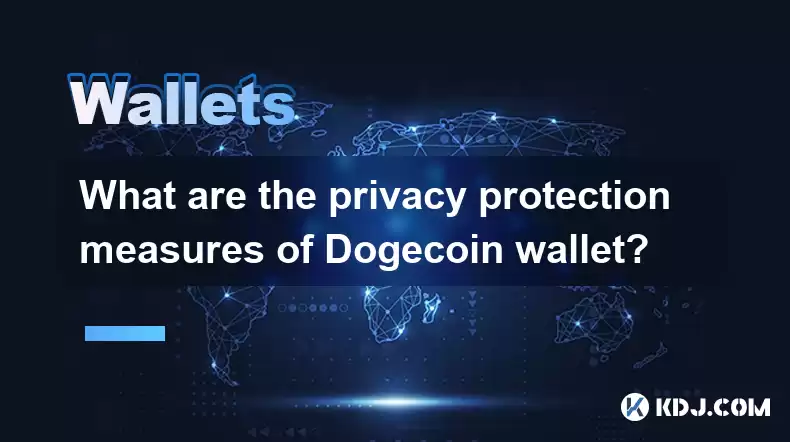
What are the privacy protection measures of Dogecoin wallet?
Dogecoin, a popular meme-based cryptocurrency, relies on the same underlying blockchain technology as Bitcoin. This means its inherent privacy features are similar, but also share the same limitations. Unlike some privacy coins, Dogecoin doesn't offer built-in obfuscation techniques to mask transaction details. Therefore, understanding the available privacy measures is crucial for users concerned about their financial information.
One primary method of enhancing Dogecoin transaction privacy is using a dedicated Dogecoin wallet. These wallets, unlike online exchanges, offer more control over your private keys – the cryptographic codes that allow you to access and spend your Dogecoin. Holding your private keys yourself, rather than entrusting them to a third party, is a fundamental step towards better privacy.
Different Dogecoin wallets offer varying levels of security and privacy features. Hardware wallets, for instance, store your private keys on a secure physical device, offering a significant improvement over software wallets installed on computers or smartphones, which are more vulnerable to malware and hacking attempts. The choice of wallet greatly influences the level of privacy you achieve.
The selection of a suitable wallet is a critical decision. Consider factors such as the wallet's reputation, its open-source nature (allowing community scrutiny of its code), and the strength of its security features. Researching and selecting a reputable wallet provider is vital for maintaining your Dogecoin privacy.
Furthermore, avoiding the use of easily traceable exchange platforms for your Dogecoin transactions is another key privacy enhancement strategy. Exchanges often require KYC (Know Your Customer) procedures, linking your real-world identity to your Dogecoin transactions. Using peer-to-peer (P2P) trading platforms, or carefully vetted exchanges with strong privacy policies, can help mitigate this risk.
Transaction mixing techniques, while not directly built into Dogecoin, can also improve privacy. Services that combine multiple Dogecoin transactions to obscure the origin and destination of funds exist, although their use carries some risks. Carefully research any such service before using it, as some may be scams or may not provide the level of privacy they claim.
Another crucial aspect of Dogecoin privacy is understanding transaction transparency on the public blockchain. All Dogecoin transactions are recorded on the public ledger. While this doesn't reveal your personal identity directly, it does display transaction amounts and addresses. To minimize exposure, avoid using the same Dogecoin address repeatedly for transactions.
Using multiple Dogecoin addresses for different purposes helps to compartmentalize your transactions, making it harder to track your spending habits. This simple step can significantly enhance your privacy. Remember to manage your private keys securely for each address.
Beyond the wallet itself, maintaining strong operational security is paramount. This includes using strong and unique passwords for all your accounts, enabling two-factor authentication (2FA) wherever possible, and regularly updating your software and wallet applications. These steps protect against unauthorized access and compromise.
Remember that even with these measures, complete anonymity is difficult to achieve with Dogecoin. The public nature of the blockchain inherently limits absolute privacy. The focus should be on minimizing your exposure and making it harder to link your real-world identity to your Dogecoin transactions.
Staying informed about the latest security practices and vulnerabilities is also essential. The cryptocurrency landscape is constantly evolving, and keeping up with best practices will help you maintain a stronger privacy posture. Regularly review your security settings and adapt your practices as needed.
Finally, understanding the limitations of Dogecoin's privacy features is crucial. It is not a privacy coin designed for complete anonymity. While you can significantly enhance your privacy using the methods discussed, complete anonymity is not guaranteed. Use Dogecoin responsibly and be aware of the risks involved.
Frequently Asked Questions:
Q: Can I completely anonymize my Dogecoin transactions?
A: No. Dogecoin's public blockchain makes complete anonymity difficult to achieve. While you can significantly enhance your privacy using various techniques, complete anonymity is not guaranteed.
Q: What is the safest type of Dogecoin wallet?
A: Hardware wallets are generally considered the safest because they store your private keys offline, making them less vulnerable to hacking and malware.
Q: Are Dogecoin transactions traceable?
A: Yes, all Dogecoin transactions are recorded on the public blockchain. While your identity may not be directly revealed, transaction amounts and addresses are visible.
Q: How can I improve my Dogecoin transaction privacy?
A: Use a dedicated hardware wallet, avoid using the same address repeatedly, use multiple addresses for different purposes, and consider using P2P trading instead of exchanges. Also, consider transaction mixing services (with caution and thorough research).
Q: What are the risks associated with transaction mixing services?
A: Some services may be scams, or they may not provide the level of privacy they claim. There's also a risk of associating your funds with potentially illicit activities if the service is used by others for illegal purposes. Thorough research is crucial before using any such service.
Q: What is the role of KYC in Dogecoin transactions?
A: KYC (Know Your Customer) procedures are primarily implemented by exchanges, requiring users to verify their identity. Using P2P trading or carefully vetted exchanges with minimal KYC requirements can help reduce this linkage.
Q: Is using a software wallet inherently less secure than a hardware wallet?
A: Yes, software wallets are more vulnerable to malware and hacking attempts as they are stored on devices connected to the internet. Hardware wallets offer significantly better security by storing private keys offline.
Disclaimer:info@kdj.com
The information provided is not trading advice. kdj.com does not assume any responsibility for any investments made based on the information provided in this article. Cryptocurrencies are highly volatile and it is highly recommended that you invest with caution after thorough research!
If you believe that the content used on this website infringes your copyright, please contact us immediately (info@kdj.com) and we will delete it promptly.
- Kazakhstan's Crypto Leap: Bitcoin ETF and Central Asia's Digital Finance Future
- 2025-08-13 12:45:19
- BlockDAG Presale Blazes Past $371M: Fundraising Frenzy Fuels Crypto Sensation
- 2025-08-13 13:05:21
- Meme Coins: Chasing the 2025 Surge – Which Will Moonshot?
- 2025-08-13 10:25:23
- Bitcoin's Wild Ride: Rally, Pullback, and What's Next
- 2025-08-13 10:25:23
- Bitcoin, Bitmax, and Institutional Demand: A New Era of Crypto Investment
- 2025-08-13 10:45:12
- Solana, ROAM, and Airdrops: What's the Buzz in 2025?
- 2025-08-13 11:35:13
Related knowledge
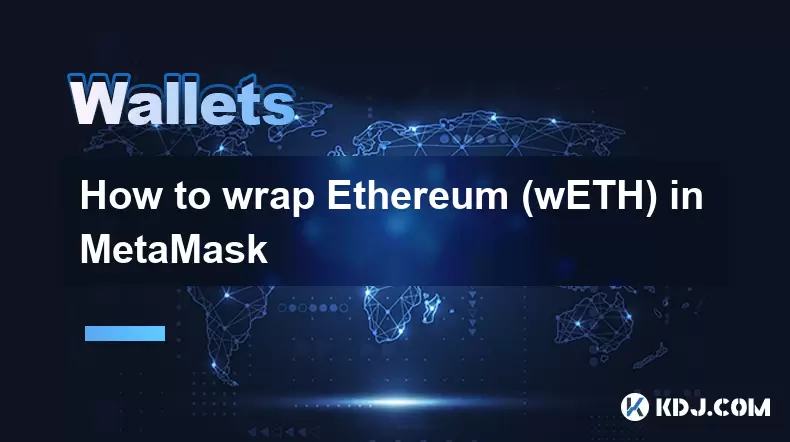
How to wrap Ethereum (wETH) in MetaMask
Aug 13,2025 at 11:36am
Understanding Wrapped Ethereum (wETH)Wrapped Ethereum (wETH) is a tokenized version of native Ethereum (ETH) that conforms to the ERC-20 standard, ena...

How to manage your portfolio in Exodus wallet
Aug 08,2025 at 10:07pm
Understanding the Exodus Wallet InterfaceThe Exodus wallet is a non-custodial cryptocurrency wallet that supports a wide range of digital assets. When...
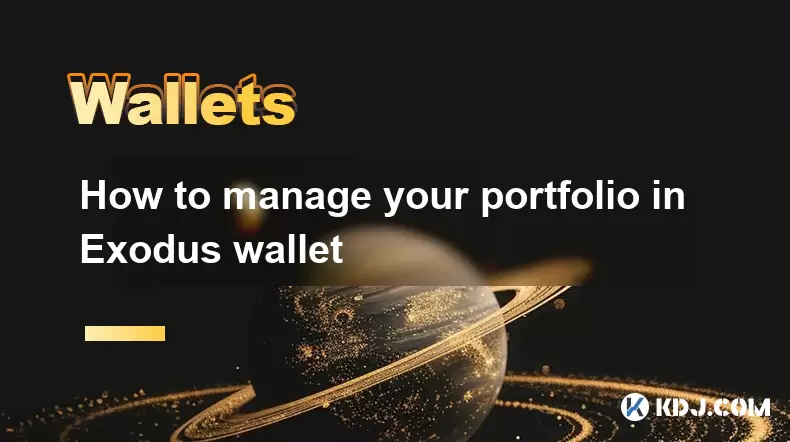
How to manage your portfolio in Exodus wallet
Aug 13,2025 at 11:35am
Understanding the Exodus Wallet InterfaceThe Exodus wallet is a non-custodial cryptocurrency wallet that supports a wide range of digital assets. Upon...

How to reset your MetaMask password
Aug 08,2025 at 01:28pm
Understanding the MetaMask Password Reset ProcessMany users confuse the MetaMask password with the seed phrase or private key, but they serve differen...
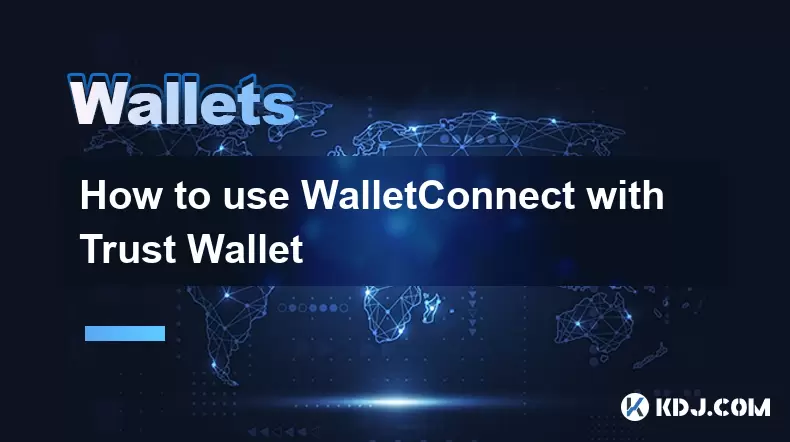
How to use WalletConnect with Trust Wallet
Aug 13,2025 at 01:07am
What Is WalletConnect and Why It Matters for Trust Wallet UsersWalletConnect is an open-source protocol that enables secure communication between dece...
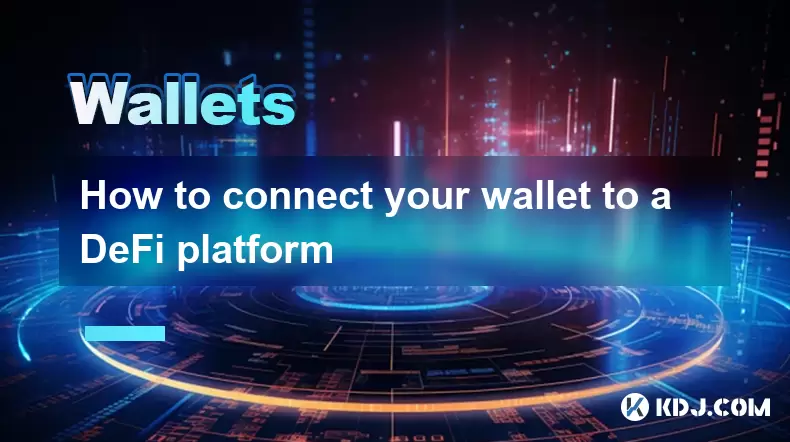
How to connect your wallet to a DeFi platform
Aug 13,2025 at 11:36am
Understanding Wallet Compatibility with DeFi PlatformsBefore connecting your wallet to any DeFi platform, it's essential to ensure your wallet is comp...

How to wrap Ethereum (wETH) in MetaMask
Aug 13,2025 at 11:36am
Understanding Wrapped Ethereum (wETH)Wrapped Ethereum (wETH) is a tokenized version of native Ethereum (ETH) that conforms to the ERC-20 standard, ena...

How to manage your portfolio in Exodus wallet
Aug 08,2025 at 10:07pm
Understanding the Exodus Wallet InterfaceThe Exodus wallet is a non-custodial cryptocurrency wallet that supports a wide range of digital assets. When...

How to manage your portfolio in Exodus wallet
Aug 13,2025 at 11:35am
Understanding the Exodus Wallet InterfaceThe Exodus wallet is a non-custodial cryptocurrency wallet that supports a wide range of digital assets. Upon...

How to reset your MetaMask password
Aug 08,2025 at 01:28pm
Understanding the MetaMask Password Reset ProcessMany users confuse the MetaMask password with the seed phrase or private key, but they serve differen...

How to use WalletConnect with Trust Wallet
Aug 13,2025 at 01:07am
What Is WalletConnect and Why It Matters for Trust Wallet UsersWalletConnect is an open-source protocol that enables secure communication between dece...

How to connect your wallet to a DeFi platform
Aug 13,2025 at 11:36am
Understanding Wallet Compatibility with DeFi PlatformsBefore connecting your wallet to any DeFi platform, it's essential to ensure your wallet is comp...
See all articles

























































































